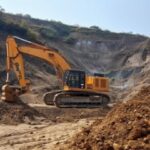Renewable energy projects – wind or solar farms – can only exist with the cooperation of landholders. From the start of negotiating an access agreement, lease or licence arrangement landholders should be aware of the risks associated with entering into ultra long-term agreements for a project.
Projects usually involve three phases:
- Negotiation and assessment
- Construction, and
- Operation.
Usually, the construction phase will cause the most immediate disruption to the landholder’s business as enormous amounts of infrastructure are readied and installed on private land.
Our experience working with landholders through construction periods leads to these ideas for managing the construction stage:
Records
A trail of records to prove who from which company is operating on the land is important. If a biosecurity protocol or access rule is breached by the project operator, it is important to prove who caused it. Records can be as simple as an electronic log of movements to and from the project area and would usually be kept by the project operator anyway. Access to these records gives the landholder the opportunity to identify who caused what issue on the land.
Rules
Rules are absolutely critical. A robust biosecurity protocol and land access rulebook should require the project operator to minimise disturbance to the landholder’s business. Without specifically designed rules, the landholder can be excluded from certain areas of its land, restricted as to what it can do on its land or at risk of losing accreditations.
Restitution
If a rule is broken and a loss suffered by the landholder for which it has not yet been compensated, the landholder should be entitled to claim additional damages from the project operator. A strong indemnity which allows the landholder to make a claim from the project operator and a fair process for that claim to be assessed and paid out gives both the landholder and the project operator security. Without a robust claim process agreed upon from the outset, the landholder and project operator can be drawn into lengthy and costly litigation to resolve claims.
Rehabilitation
Construction usually involves the installation of temporary roads, water diversion channels and laydown areas which are not needed for the operation phase. The removal of temporary infrastructure and rehabilitation of certain sites should be agreed upon to ensure that the land is left only with that equipment which is necessary for the operation of the project. In some cases, the landholder may wish to retain parts of the temporary infrastructure and this should also be agreed upon before the construction phase is completed.
Resolution
The scale of construction is likely to cause some dispute between the landholder and project operator. A fair process for complaints to be made, assessed in a reasonable period and resolved by either negotiation or mediation avoids drawn out disputes and protects working relationships. Where contractors or sub-contractors are engaged to carry out work, the scope for disputes becomes wider as personnel not directly employed by the project operator work on the land. A fit-for-purpose dispute resolution process gives a pathway for landholders to communicate issues to the project operator who is then responsible to the landholder for a solution.
A renewable energy project can provide benefits for landholders which can last for generations, though there is only one opportunity to set the rules of engagement with the project operator. Our experience with landholders in establishing these projects provides us with a skillset to deploy for clients who are presented with renewal energy project opportunities.





